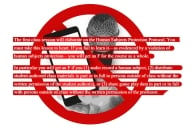You have /5 articles left.
Sign up for a free account or log in.
Scientists wedded to the laboratory bench around the clock must have resorted on occasion to personals columns to find a preferable nocturnal pursuit. But young biologists at the University of Derby have been given an early introduction to personal ads by two academics.
Ian Turner, senior lecturer in biology and forensic science, and Ellen Beaumont, lecturer in vertebrate biology, wanted to find an engaging way to teach their second-year biological sciences undergraduates how to write the abstracts that summarize journal paper findings. So they gave the students a lonely hearts advertisement and asked them to use the information to construct a biography of its author..
In a paper describing the experiment, published in April in the journal Innovative Practice in Higher Education, the academics justify their approach by noting that such ads are "an abstract of a person's personality and interests," and the way they are constructed "can lead to different interpretations."

The students were also handed a selection of celebrity profiles and asked to summarize them using only three words -- and no proper nouns. Their peers then had to guess who they were referring to.
"This exercise illustrates the difficulty of writing abstracts and conveying lots of information in a concise way," says the paper, titled "Lonely heart columns: A novel and entertaining way of teaching students abstract writing skills."
Turner admitted to Times Higher Education that neither exercise was exactly analogous to scientific writing, but both tested relevant skills in "reading large amounts of information, synthesizing it and condensing it into a digestible, abstract format,." He said the exercise also boosted students' creativity -- "a much-needed (and neglected) skill in the sciences."
"The students were also required to carry out a more traditional summarizing exercise," he added.
Although the improvement in the students' abstract writing after the class was no greater than from a standard lesson, 95 percent of them said they had enjoyed it. For this reason, Turner said, he intended to continue with the approach.
'"I really like the Aristotle quote that 'educating the mind without educating the heart is no education at all,' so fun was really the driver," he said. "It would have been nice to improve performance, but as long as there was no negative impact I am happy. I would like to think there are many secondary positive benefits of this method, including engagement and creative thinking."








